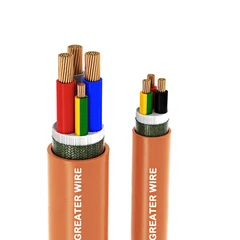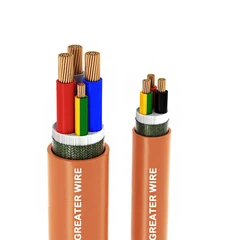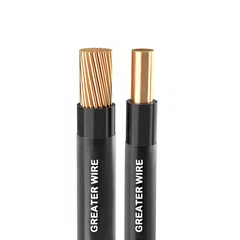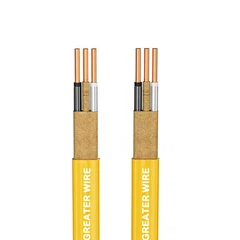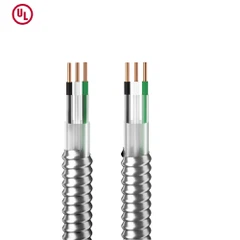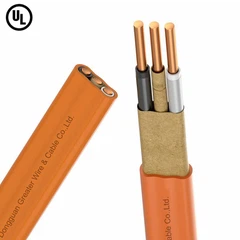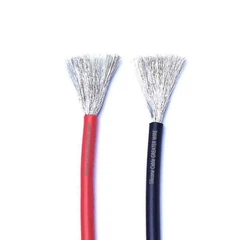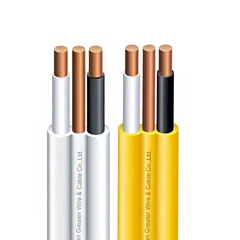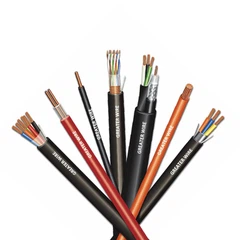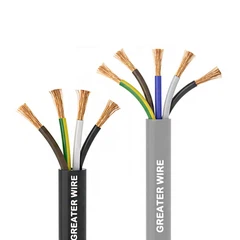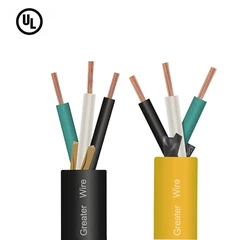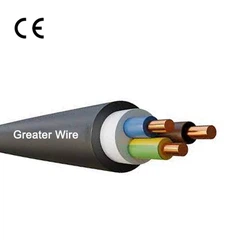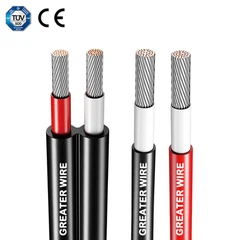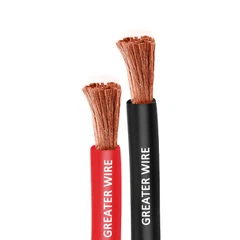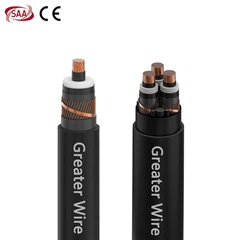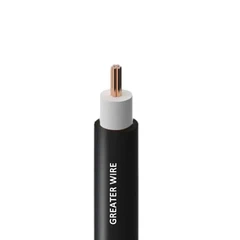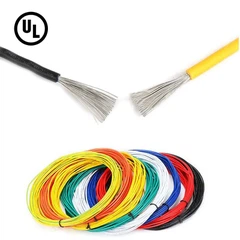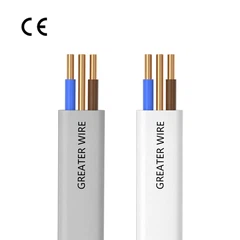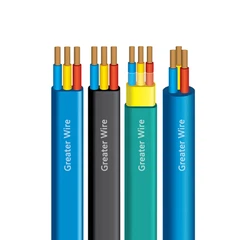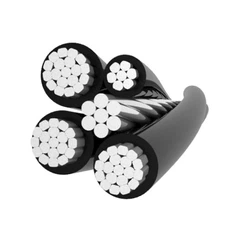In the world of electrical wiring, not all cables are created equal. The choice of insulation material can dramatically influence how a wire performs, how long it lasts, and where it can be safely used. Two of the most common options are Silicone Wire and PVC Wire. At first glance, they may look similar-copper conductors wrapped in protective insulation-but when you look closer, you'll find that they serve very different purposes. For engineers, electricians, and procurement managers, understanding these differences can mean the success or failure of a project.
What Is Silicone Wire?
Silicone Wire is an electrical wire insulated with silicone rubber, a synthetic material known for its outstanding flexibility and resistance to extreme temperatures. Unlike many other insulations, silicone doesn't harden in the cold or melt easily in the heat. That means these wires can perform reliably across a temperature range of –60°C to +200°C, sometimes even higher depending on the grade.
Inside, you'll often find finely stranded copper conductors-sometimes tinned for extra corrosion resistance-which enhance both conductivity and flexibility. Because of this combination, Silicone Wire is commonly used in environments where wires need to bend frequently, endure harsh conditions, or operate near high heat sources. Imagine the inside of an oven, the engine compartment of an electric vehicle, or a robotic arm on a manufacturing line. These are all scenarios where conventional cables would fail quickly, but Silicone Wire continues to deliver consistent performance.

What Is PVC Wire?
PVC Wire, on the other hand, is insulated with polyvinyl chloride, one of the most widely used plastics in the cable industry. PVC is valued for being cost-effective, easy to manufacture, and suitable for a broad range of standard applications. It offers decent insulation, moderate flexibility, and resistance to moisture, making it the go-to choice for household wiring, general appliances, and light-duty industrial use.
However, PVC has its limitations. Its performance is typically restricted to temperatures between –10°C and +70°C, sometimes up to +90°C for special grades. In environments with extreme heat or constant movement, PVC insulation tends to harden, crack, or degrade over time. For that reason, while PVC Wire is perfect for conventional residential and commercial wiring, it isn't ideal for high-stress or high-heat applications.
The Key Differences Between Silicone Wire and PVC Wire
Although both Silicone and PVC serve the same fundamental purpose-insulating electrical conductors-their characteristics are very different. To illustrate:
| Feature | Silicone Wire | PVC Wire |
|---|---|---|
| Temperature Range | –60°C to +200°C (or more) | –10°C to +70°C (up to +90°C for special types) |
| Flexibility | Extremely flexible, even in cold environments | Moderately flexible, but stiffens with age and low temperature |
| Durability | Resistant to heat, ozone, UV radiation, and many chemicals | Good durability in mild conditions, less resistant to heat and chemicals |
| Applications | High-performance appliances, automotive, aerospace, robotics, medical, solar | Household wiring, consumer electronics, general-purpose wiring |
| Cost | Higher, due to premium materials and performance | More economical, widely available |
From this comparison, it's clear that Silicone Wire excels in demanding conditions, while PVC Wire remains a practical solution for standard installations where extreme durability isn't required.
Where Is Each Type of Wire Used?
The choice between Silicone and PVC largely comes down to environment and performance needs.
- Silicone Wire is commonly found in high-temperature appliances like ovens, microwaves, and toasters. In the automotive sector, it's used for battery connections, lighting, and under-hood wiring. Aerospace engineers prefer it for aircraft controls because of its ability to withstand extreme conditions. In renewable energy systems such as solar power installations, Silicone Wire is chosen for its long-term resistance to UV exposure and fluctuating weather.
- PVC Wire is the backbone of residential and commercial wiring. From the wires running through the walls of your home to the cables powering small appliances, PVC provides safe and cost-effective insulation. It is also used in many control systems, consumer electronics, and office equipment where the operating conditions are relatively mild.
How to Choose the Right Wire
Choosing between Silicone and PVC Wire isn't about which one is universally better-it's about which one is right for your specific application. If your project involves extreme temperatures, frequent flexing, or outdoor exposure, Silicone Wire is worth the investment because it prevents costly failures and extends operational life. If your project involves indoor residential wiring or appliances with moderate temperature ranges, PVC Wire may be the smarter choice for balancing performance with cost.
When selecting the right wire, consider these factors: operating temperature, expected lifespan, flexibility requirements, exposure to chemicals or UV light, and of course, budget. For example, if you are wiring an industrial robot, flexibility and durability are critical-Silicone Wire is the clear winner. But if you're wiring a standard household socket, PVC Wire will be perfectly suitable.
Why Choose Dongguan Greater Wire & Cable Co., Ltd.?
With so many options on the market, sourcing reliable and high-quality cables can be a challenge. That's where Dongguan Greater Wire & Cable Co., Ltd. stands out. With more than 30 years of industry experience, we are a global leader in cable manufacturing, offering both Silicone and PVC Wires designed to meet strict international standards, including IEC, BS, and AS/NZS.
Our 50,000+ m² modern factory is equipped with fully automated production lines, ensuring consistent quality and efficiency at scale. All our products undergo rigorous testing for temperature resistance, flexibility, flame retardancy, and durability, giving customers confidence in long-term performance.
Beyond manufacturing, we specialize in customization. Whether you need a specific wire gauge, insulation color, special packaging, or even tailored conductor design, our R&D team works closely with you to deliver exactly what your project demands. And with 50+ certifications across major global standards, our cables are trusted worldwide for safety and compliance.
We also understand the importance of reliable service. That's why we provide 24/7 customer support, fast shipping to global markets, and technical guidance to help clients choose the right product every time. When you partner with Greater Wire & Cable, you don't just get a supplier-you gain a trusted partner in powering your success.
The difference between Silicone Wire and PVC Wire lies in their unique strengths. Silicone offers unparalleled flexibility and durability in extreme environments, while PVC provides a cost-effective, practical solution for everyday wiring needs. The key is to match the wire to your project's demands.
At Dongguan Greater Wire & Cable Co., Ltd., we are proud to supply both Silicone and PVC Wires of the highest quality, helping our customers around the world achieve safe, reliable, and efficient installations. Whether you are working on a cutting-edge industrial project or a residential development, we have the right solution tailored to your needs.
Dongguan Greater Wire & Cable Co., Ltd.
Tel/WhatsApp/Wechat: +86 135 1078 4550 / +86 136 6257 9592
Email: manager01@greaterwire.com

